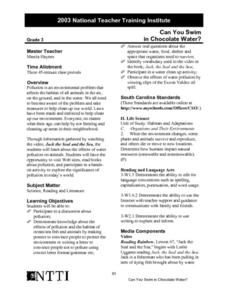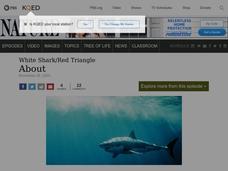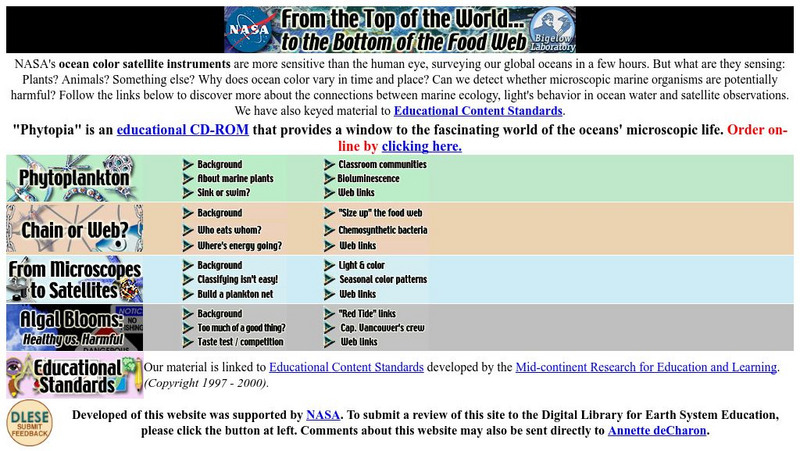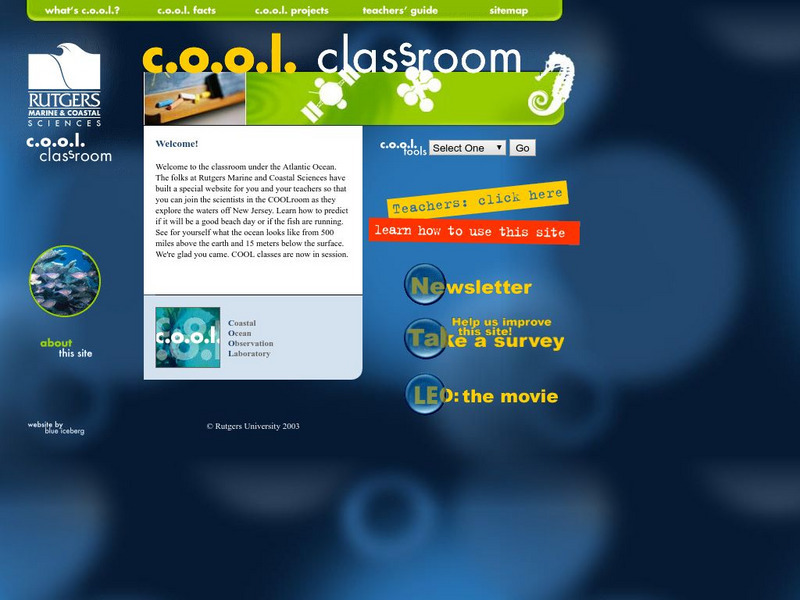Curated OER
Let's Go To Mexico
Students are able to use the Internet to conduct research. They research Mexican culture and traditions. Students compare and contrast Mexican and U.S. food and clothing. They convert United States currency to Mexican pesos. Students...
Curated OER
Limu in Your Lunch
Students explore various types of algae found in Hawaii. In this science lesson, students research species of the three types of limu and identify various uses. Students explore products that contain limu.
Curated OER
Field Trip - Marine Science Institute
Learners discover the ocean life of the San Francisco Bay. In this ocean lesson, students take a Discovery Voyage of the Bay ecosystem through the Marine Science Institute. Also available are inland voyages, ocean labs, and tidepool...
Curated OER
The Water Cycle
When homeschooling parents and children tackle the water cycle, the results can be a fascinating exploration of our environment.
Curated OER
Culture Creation vs. Culture Consumption - Finding Voice Through Digital Storytelling
Ninth graders explore the power of media in culture and Gandhi's philosophy of nonviolence. In this nonviolence and media lesson, 9th graders analyze Gandhi's nonviolent methods for social change and discuss the media's power to create...
Curated OER
Just Jelly
Students identify common gelatinous zooplankton in the Canada Basin and their ecological role. They compare and contrast feeding strategies of at least three different types of gelatinous zooplankton.
Curated OER
Exploiting Antarctica
Students read the story and diary "Lizzie's diaries from Antarctica and Antarctica" to get massive clean-up. Students discuss their knowledge of life in Antarctica and raise the fact of the Amundsen-Scott South Pole Station and its...
Curated OER
Great Salt Lake Introductory lesson
Fourth graders explore the Great Salt Lake. Using the internet, they identify web sites that contain information on the Great Salt Lake. After researching the website, 4th graders answer questions and list information they collected...
Curated OER
The Future of Arctic Sea Ice
Students research about the importance of sea ice to world climate and sea organisms. In this earth science instructional activity, students create a model of present and future Arctic sea ice communities. They discuss how ice melting...
Curated OER
The Gulf of Maine
Students examine the effect of limiting factors, especially when it comes to human beings. They examine data from the Gulf of Maine area.
California Polytechnic State University
Australian Geography Unit
At the heart of this resource is a beautifully detailed PowerPoint presentation (provided in PDF form) on the overall physical geography of Australia, basic facts about the country, Aboriginal history, and Australia culture and lifestyle.
Curated OER
Global Warming Statistics
Students research real-time and historic temperature data of U.S. and world locations, and analyze the data using mean, median, and mode averages. They graph the data and draw conclusions by analyzing the data. A spreadsheet is used to...
Curated OER
Can You Swim in Chocolate Water?
Third graders discss water pollution and its affects on animals. They watch a demonstration using a plastic fish in a fish bowl in which various types of water pollution are illustrated.
Curated OER
Shark Attack
Young scholars examine the white shark. They think critically about a set of shark facts and predict whether the statements are true or false. Students describe a year in the life of a white shark living in the Red Triangle. They...
Other
Nasa: From the Top of the World to the Bottom of the Food Web
Teachers and students discover linkages among marine ecology, phytoplankton, the behavior of light at the ocean surface, and satellite-derived ocean color data. Explore the topics of phytoplankton, food webs, and algal blooms using...
Other
Digital Library for Earth System Education: Teaching Box: Seasonal Upwelling
A suite of lessons focusing on the process of upwelling. Inquiry-based exploration of seasonal upwelling includes marine food webs, food production in the ocean, wind-driven ocean currents, and seasonal changes in biotic and abiotic...
Other
Rutgers Marine & Coastal Sciences: Cool Classroom
Students and teachers can explore the work of marine scientists and observe the ocean from their computers. Learn about Rutgers Coastal Ocean Observation Laboratory, discover why oceanography is important, and see what life is like in...


















